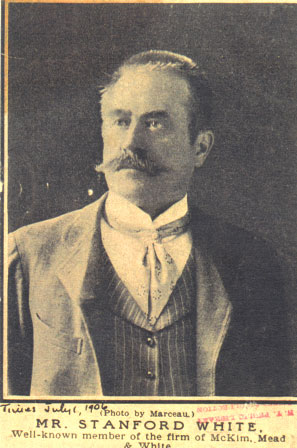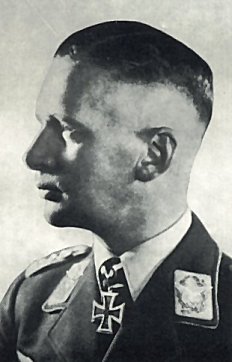
June 25

1212 Death: Simon de Montfort, a leader of the crusades, at the age of 67.
1630 The fork is introduced to the American dining table by Governor John Winthrop.
1638 A lunar eclipse becomes the first astronomical event recorded in the US.
1672 The first recorded monthly Quaker meeting in the US is held in Sandwich, Massachusetts.

1788 Virginia becomes 10th state to ratify US constitution.
1797 British Admiral Nelson has his right arm amputated after being wounded by grapeshot during a battle off Santa Cruz.
1798 The US, under second president John Adams, passes the Alien Act allowing the president to deport dangerous aliens. Note: Adams will later declare that this act, as well as the Sedition Act, were his greatest mistakes in office.
1844 President John Tyler takes Julia Gardiner as his bride, thus becoming the first US President to marry while in office.

1852 Birth: Antonio Gaudi, Spanish architect, (Sagrada Familia, Barcelona).
1864 Birth: Walther Hermann Nernst, Prussian physical chemist, Nobel 1920.

1865 Birth: Robert Henri, US painter, leader of the Ashcan school.
1867 Barbed wire, invented by ironmonger Lucien B. Smith of Kent, Ohio, is patented on this day.
1868 Florida, Alabama, Louisiana, Georgia, North Carolina and South Carolina are readmitted to the Union.
1870 Queen Isabella of Spain abdicates in favor of Alfonso XII.

1874 Birth: Rose O'Neill, illustrator.

1876 Battle of the Little Big Horn: Determined to resist the efforts of the US Army to force them onto reservations, Indians under the leadership of Sitting Bull and Crazy Horse wipe out Lieutenant Colonel George Custer and much of his 7th Cavalry at the Battle of the Little Big Horn, Montana. The Battle of the Little Big Horn is the Indians' greatest victory and the army's worst defeat in the long and bloody Plains Indian War. The Indians are not allowed to revel in the victory for long, however. The massacre of Custer and his 7th Cavalry outrages many Americans and only confirms the image of the bloodthirsty Indians in their minds, and the government becomes more determined to destroy or tame the hostile Indians. The army redoubles its efforts and drives home the war with a vengeful fury. Within five years, almost all of the Sioux and Cheyenne will be confined to reservations and both Sitting Bull and Crazy Horse will have been killed by their enemies.

1886 Birth: [Henry] Hap Arnold, US WW2 Army General. "Hap Arnold was one of the truly great men in American airpower. Taught to fly by the Wright brothers, he rose steadily in rank and responsibility throughout the 1920s and 30s and became the commanding general of the Army Air Forces (AAF) during World War II. In 1944 he was promoted to fivestar rank, but his health was very poor-he suffered five heart attacks during the war-and he retired six months after Japan surrendered....Graduating from West Point in 1907, Arnold had hoped to join the cavalry. However, his cadet performance was so dismal he instead was relegated to the infantry. After a tour in the Philippines, he reapplied to the cavalry, but was again refused. Largely out of a desire to escape from the infantry, Arnold then applied for the Signal Corps and became one of America's first military pilots. Aviation was extremely dangerous in those early days, and after several crashes and near crashes, Arnold elected to ground himself. After more than three years of desk work, he overcame his fears and returned to flying..."
1894 Birth: Hermann Oberth, in Germany; will found modern astronautics.
1895 Alois Hitler retires with a comfortable government pension from the Austrian customs service.
1903 Birth: Eric Arthur Blair, AKA George Orwell, satirist, journalist, British novelist; Animal Farm, 1984.

1906 Death: Stanford White, architect, shot dead while atop Madison Square Garden, which he had designed. He is murdered by Harry Thaw the jealous husband of Evelyn Nesbit. During Thaw's trial, he will attempt to plead 'brainstorming' (temporary insanity).
1907 Birth: J Hans D Jensen, in Germany, physicist; atomic nuclei-Nobel 1963.
1910 The US Congress authorizes the use of postal savings stamps.

1917 WW1: June 25-July 21 Dispatch Runner Lance Corporal Adolf Hitler serves at the front with 3 Company, 16 Bavarian Reserve Infantry Regiment during 'Phase 1' operations in Flanders. (Maser)
1918 WW1: The Marine Brigade of the US Second Division captures Bouresche and Belleau Wood. The Marines suffer 9,500 casualties, almost 55 percent.
1919 The first advanced monoplane airliner takes to the skies; the Junkers F13.
1925 A prototype car phone is exhibited in Germany.

1925 Birth: Robert Venturi, US architect; Levittown NY, Las Vegas.
1929 President Hoover authorizes the building of Boulder/Hoover Dam.
1932 Birth: Peter Blake, British artist.
1934 Holocaust: Professor Lenz says at a meeting of the Expert Advisory Council for Population and Race Policy: "As things are now, it is only a minority of our fellow citizens who are so endowed that their unrestricted procreation is good for the race." (Science)
1936 Church and Reich: A Swiss Catholic reportedly asks children to pray for the death of Hitler. The German press quickly accuses all Catholics of being in sympathy with sedition. (Lewy)
1938 President Franklin D. Roosevelt signs into law the first minimum wage in the United States. The new law, considered controversial at the time, establishes at .25 cents per hour minimum wage and a maximum 44 hour work week for minors.
1938 Gaelic scholar Douglas Hyde is inaugurated as the first president of the Irish Republic.
1940 Holocaust: A paper by Professor Lorenz, "Disturbances of species-specific behavior caused by domestication," appears. He writes: "There is a certain similarity between the measures which need to be taken when we draw a broad biological analogy between bodies and malignant tumors, on the one hand, and a nation and individuals within it who have become asocial because of their defective constitution, on the other hand... Any attempt at reconstruction using elements which have lost their proper nature and characteristics is doomed to failure. Fortunately, the elimination of such elements is easier for the public health physician and less dangerous for the supra-individual organism, than such an operation by a surgeon would be for the individual organism." (Science)
1940 WW2: The Franco-German armistice takes effect. Two-thirds of France now comes under Nazi control.

1940 WW2: Increased income taxes are introduced in the US to pay for Roosevelt's armament expenditures and bring in an additional 2.2 million people who never before had been required to pay income taxes.
1940 WW2: A new Romanian government is set up in Bucharest and several Legionaries are given appointments to minor positions.

1940 WW2: General Hans Jeschonnek, the perceptive chief of the German air staff, is asked by the OKW to help prepare invasion plans for Britain. He refuses, telling them, "There won't be any invasion, and I have no time to waste on planning one."
1942 WW2: Major General Dwight Eisenhower is appointed commander of US forces in Europe. On the same day, General Sir Claude Auchinleck becomes commander of the British Eighth Army in North Africa.
1942 WW2: Some 1,000 Royal Air Force bombers raid Bremen, Germany.
1946 Nuremberg War Crimes Trials: Former German Foreign Minister and diplomat Von Neurath resumes the stand. "...DR. VON LUDINGHAUSEN (von Neurath's counsel): In connection with the last point, I should like to put one more question about the position of Jews in the Protectorate. What can you tell us about it? VON NEURATH: The legal position of the Jews had to be coordinated with the position of the Jews in the Reich, according to instructions from Berlin. The directives with regard to this had been sent to me already in April of 1939. Through all sorts of inquiries addressed to Berlin, I tried and succeeded in not having the laws go into effect until June 1939, so as to give the Jews the opportunity to prepare themselves for the imminent introduction of these laws. The so-called Nuremberg Laws were introduced into the Protectorate, too, at that time. Thereby-the Jews were removed from public life and from leading positions in the economic life. However, arrests on a large scale did not take place. There were also no excesses against Jews, except in a few single instances. The camp at Theresienstadt was not erected until long after my time of office, and I prevented the erection of other concentration camps in the Protectorate, too. DR. VON LUDINGHAUSEN: The Czech report accuses you of personally carrying through anti-Jewish measures. They maintain that, first of all, you charged the Czech Government, that is to say the autonomous government, with the carrying through of the anti-Jewish laws and that when Ministerprasident Elias refused to do so, you personally took the necessary steps. VON NEURATH: As I said just now, the introduction of the anti-Jewish laws came about on Hitler's direct order..."

1950 Korea: War breaks out in Korea as forces from the communist North invade the South.
1959 Eamon De Valera becomes president of Ireland at the age of 76.

1960 Death: Walter Baade, astronomer.
1961 Iraq declares that it considers Kuwait to be a part of Iraq. Kuwait disagrees.
1962 The US Supreme Court rules (5 to 4) that prayers in public schools violate the First Amendment to the Constitution regarding the separation of church and state.
1966 Kosmos 122, the first Soviet weather satellite, is launched.
1967 40 million people view the first live television satellite program to air worldwide, a two-hour satellite television program transmitted live by satellite to five continents and 24 countries. Part of the first TV global linkup, Our World, the Beatles perform a John Lennon composition written specifically for the event: All You Need Is Love.
1970 The US Federal Communications Commission (FCC) hands down legislative ruling 35 FR 7732, making it illegal for radio stations to put telephone calls on the air without the permission of the person being called.
1973 Watergate: Former White House Counsel John Dean begins testifying before the Senate Watergate Committee.
1975 Birth: The People's Republic of Mozambique. Samora Machel is sworn in as president after 477 years of Portuguese rule.
1977 Roy C. Sullivan of Virginia must be doing something wrong: He is struck by lightning on this day...for the 7th time.
1982 The US Secretary of State Alexander Haig resigns from Reagan's cabinet and George Schultz replaces him.
1984 Lord Carrington of Britain succeeds Joseph Luns as NATO secretary-general.
1987 Pope John Paul II receives Austrian President Kurt Waldheim.
1988 Death: American-born Mildred Gillars, better known during WW2 as Axis Sally for her Nazi propaganda broadcasts, in Columbus, Ohio, at age 87. Note: Gillars had served 12 years in prison for treason.
1990 African National Congress leader Nelson Mandela meets with President George HW Bush at the White House.
1990 In the sub-Antarctic, 7,000 King Penguins commit mass-suicide on uninhabited Macquaine Island. No one knows why.
1990 Curzan vs. Missouri: The US Supreme Court upholds (5-4) the right of an individual, whose wishes are clearly made, to refuse life-sustaining medical treatment; the so-called 'right to die' case.
1991 Driven by nationalist ardor and economic arguments, the Yugoslav republics of Slovenia and Croatia declare independence. The declaration is poorly received by Serbian leaders in Belgrade and a bitter civil war will soon begin. The war will spread throughout the former Yugoslavia and continue until 1995, when a fragile peace agreement will finally be reached.
1991 The last Soviet troops stationed in Czechoslovakia leave the country, 23 years after the Warsaw Pact invasion.
1993 Canada elects Kim Campbell, its first woman prime minister. Canada's 19th prime minister, Campbell will govern until 25 October 1993, at which time the Progressive-Conservative party will be royally defeated.
1995 Death: Warren Burger, 15th chief justice of the United States, in Washington of congestive heart failure at the age of 87.
1996 A bomb blast tears through a Saudi Arabian military complex housing foreigners, killing 19 Americans.
1998 The US Supreme Court rejects a 1997 line-item veto law as unconstitutional, and rules that HIV-infected people are protected by the Americans With Disabilities Act.
1999 During a news conference, President Bill Clinton asks the people of Serbia to decide if Slobodan Milosevic is fit to remain president of Yugoslavia.
2001

2002

2003

2004

2005

2005

2005

2005

Visit:




 Visit:
Visit:

Click Here to email the History: One Day At a Time webmaster.